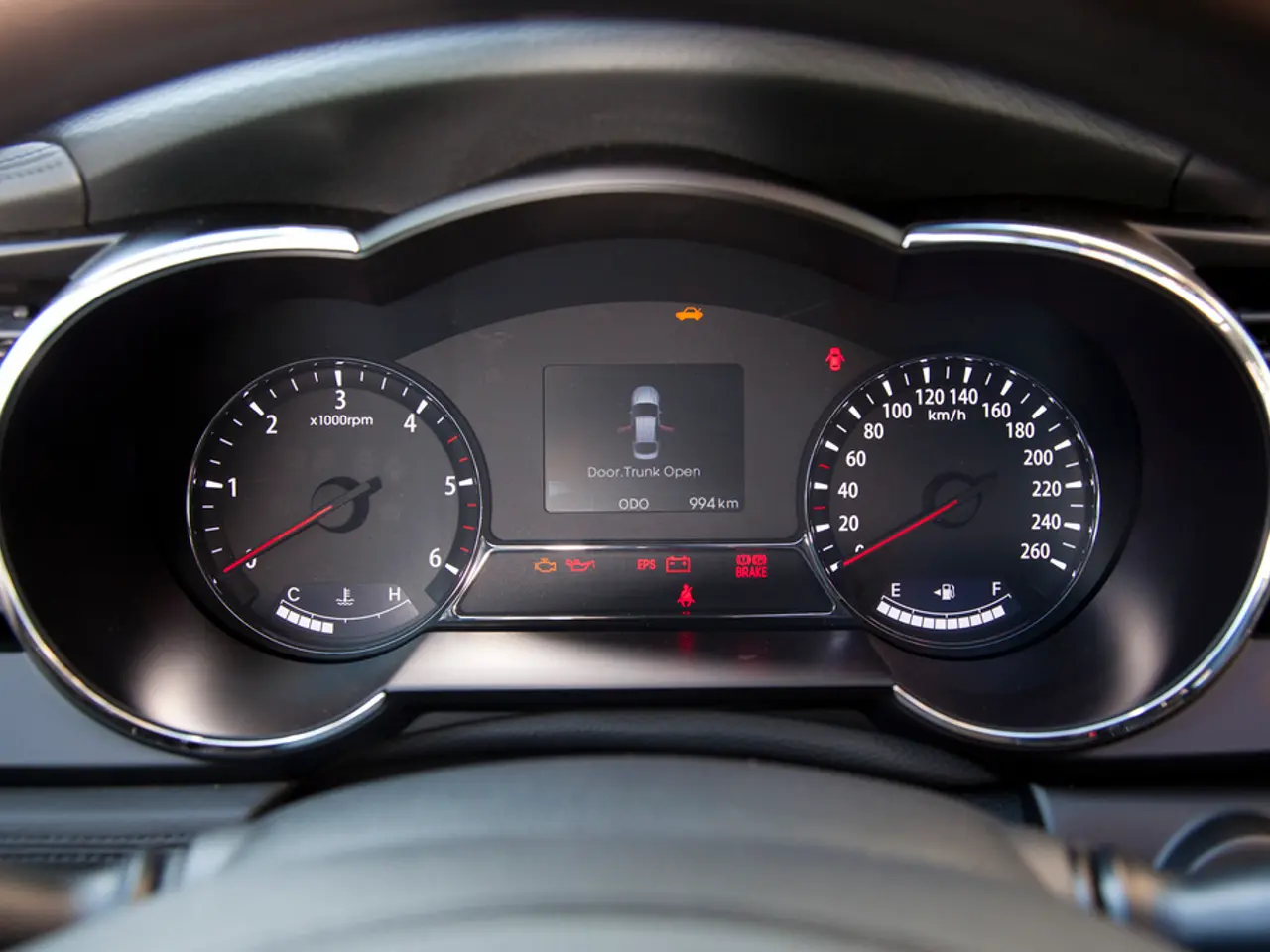Expanded Market for Sophisticated Battery Pack Sensors Surpassing $200 Million, According to IDTechEx Report
The market for advanced sensors in battery packs is set to witness a significant surge, with projections indicating that it could exceed $220 million by 2036 [5]. This growth is primarily driven by the increasing demand for enhanced safety and efficiency in electric vehicles (EVs) and energy storage systems.
These advanced sensors play a pivotal role in improving safety and performance. They include gas sensors, pressure sensors, moisture sensors, humidity sensors, and aerosol sensors.
Gas sensors, constituting over 73% of the market, are crucial for detecting gases such as hydrogen or volatile organic compounds that may be released during battery charging or discharging [3]. These sensors are vital for ensuring safety monitoring.
Pressure sensors, on the other hand, monitor the pressure within battery packs, helping to maintain optimal operating conditions and prevent overcharging or over-discharging, which can lead to safety issues like overheating or explosions.
Moisture sensors detect moisture levels within battery packs, preventing corrosion and ensuring the longevity of the battery cells. Humidity sensors, similar to moisture sensors, help maintain optimal humidity levels, preventing moisture accumulation that could lead to electrical failures.
While less commonly discussed, aerosol sensors could potentially be used to detect particulate matter or aerosols that might be generated during battery degradation or failure. This could be a future area of development for enhancing safety in advanced battery systems.
The integration of advanced sensors into battery packs is expected to become more widespread due to upcoming regulations that will require their use for enhanced safety and efficiency in both EVs and energy storage systems [3]. The growth of the intelligent battery sensor market, driven by AI and real-time diagnostics, further supports the adoption of advanced sensors in battery management systems [1].
The report, "Advanced Battery Pack Sensors and Remote Monitoring 2026-2036: Technologies, Markets and Forecasts", offers valuable insights into the future of the advanced battery pack sensors market. It can be accessed at www.IDTechEx.com/ABP.
Currently, regulations only require a 5-minute warning before any fire or smoke enters the passenger area of electric vehicles, not for the detection of dangerous gases in the pack. Conventional methods of detecting thermal runaway, a chain reaction that occurs in batteries and can lead to battery fires, focus on current, voltage, and temperature sensing and may not provide warning when the vehicle is parked.
Advanced sensors, such as gas sensors, pressure sensors, and aerosol sensors, can provide additional avenues for runaway detection and allow for monitoring of cell venting. Gas sensing allows for the detection of cell venting and provides earlier and more reliable warnings than pressure or aerosol detection.
Without further regulations, most automotive developers are likely to continue using only conventional sensors to avoid additional costs. However, the market for advanced battery pack sensors is predicted to expand significantly over the next decade and see widespread adoption across the automotive and energy storage industries.
Electric vehicle fires have occurred while the vehicle was parked due to the lack of gas or pressure sensing and monitoring of cell venting events. As technology advances and the demand for electric vehicles and renewable energy storage increases, the market for advanced sensors in battery packs is poised for significant expansion and innovation.
- The role of environmental-science in understanding and addressing climate-change is crucial, as it helps in identifying the impact of various industries, including EVs and energy storage systems, on the environment.
- The integration of data-and-cloud-computing technology with advanced sensors in battery packs can lead to more efficient energy management and real-time diagnostics, contributing to the growth of the intelligent battery sensor market.
- The financial sector can play a vital role in supporting the expansion of the market for advanced sensors in battery packs, as investments in environmental-science, technology, and energy are essential for a sustainable future.
- As the demand for sustainability and safety increases, technology, particularly in the field of environmental-science and energy, will continue to drive the finance industry's investments in advanced sensors for battery packs, leading to innovation and reduction of environmental impact in the industry.




